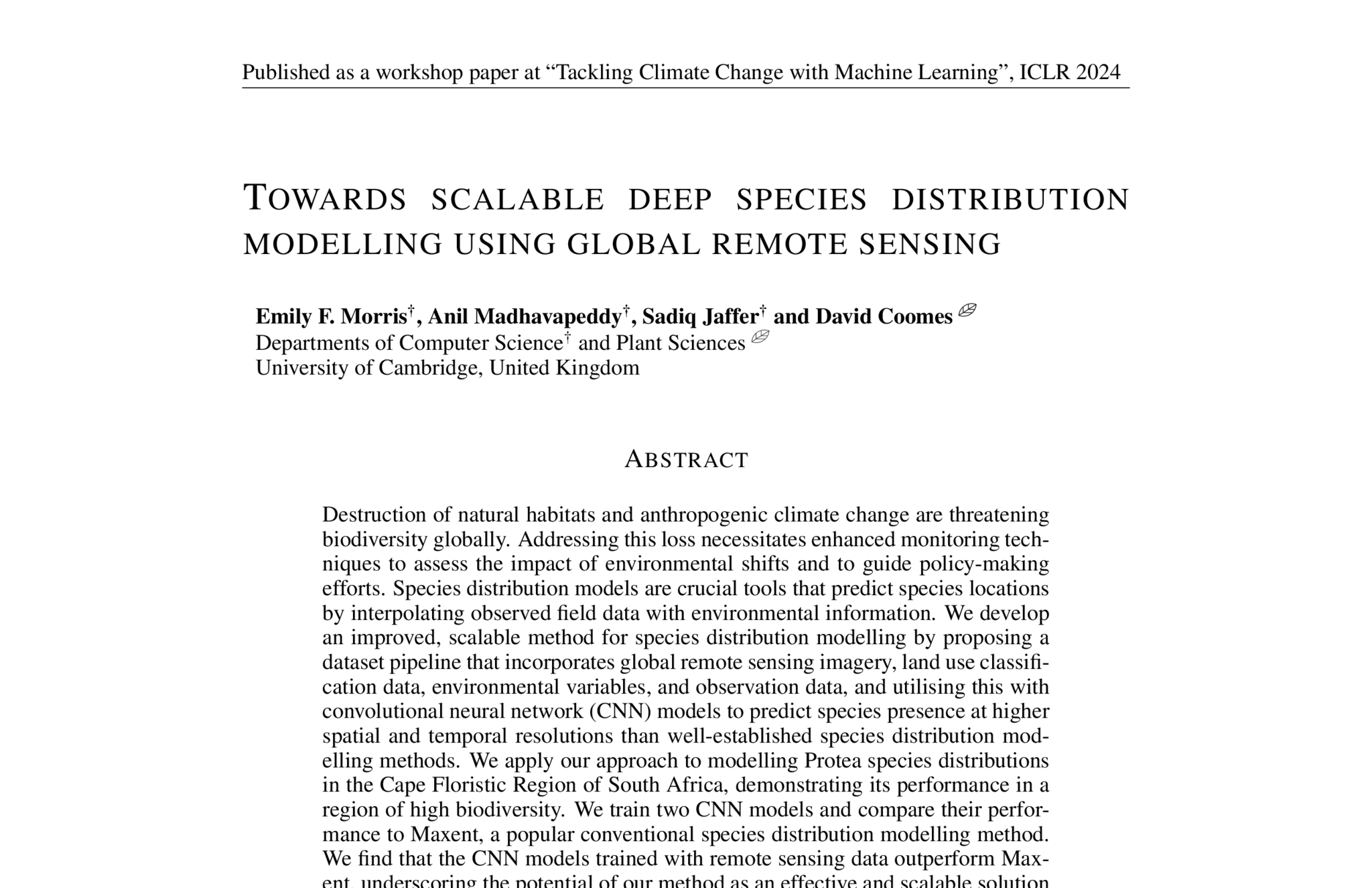Towards Scalable Deep Species Distribution Modelling using Global Remote Sensing
. In proceedings of the ICLR 2024 Workshop on Tackling Climate Change with Machine Learning. .
Abstract
Destruction of natural habitats and anthropogenic climate change are threatening biodiversity globally. Addressing this loss necessitates enhanced monitoring techniques to assess the impact of environmental shifts and to guide policy-making efforts. Species distribution models are crucial tools that predict species locations by interpolating observed field data with environmental information. We develop an improved, scalable method for species distribution modelling by proposing a dataset pipeline that incorporates global remote sensing imagery, land use classification data, environmental variables, and observation data, and utilising this with convolutional neural network (CNN) models to predict species presence at higher spatial and temporal resolutions than well-established species distribution mod- elling methods. We apply our approach to modelling Protea species distributions in the Cape Floristic Region of South Africa, demonstrating its performance in a region of high biodiversity. We train two CNN models and compare their performance to Maxent, a popular conventional species distribution modelling method. We find that the CNN models trained with remote sensing data outperform Maxent, underscoring the potential of our method as an effective and scalable solution for modelling species distribution.
